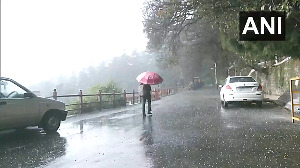Ambush marketing ploys during next year's World Cup could lead to fines of up to US $4000 and, in the most extreme cases, prison sentences of as long as two years.
South Africa's World Cup organizing committee, headed by the influential and well-connected Ali Bacher, has mobilized government support to stamp out the kind of market hijacking that dogged the 1996 World Cup and the Atlanta Olympic Games in the same year.
The Merchandise Marks Act already existed on the country's statute books and provided basic protection to the producer and consumer. However, severe -- some say draconian -- amendments were passed in parliament in Cape Town last month and could now result, among other things, in innocent members of the public being thrown out of stadiums for which they possess a valid ticket.
 So protective of the official ICC sponsors are the new measures that should a spectator unknowingly arrive for the match wearing an offending item of clothing (a 'Coke' t-shirt, for example), he will be asked to remove it before entering the stadium.
So protective of the official ICC sponsors are the new measures that should a spectator unknowingly arrive for the match wearing an offending item of clothing (a 'Coke' t-shirt, for example), he will be asked to remove it before entering the stadium.
Organizers proudly boast that closed circuit security cameras will patrol the crowds within the stadiums to pick out the appearance of further such items. Security guards will then instruct the spectator to remove whatever is causing 'offence'.
Human rights groups have expressed anger and outrage at the imposition of a 'dress code', and there have been threats by some to dress 'illegally' on principle.
Whilst the possibility that genuinely 'innocent' spectators may be forced to endure a match on the sidelines, or in borrowed clothing, they are not the ones who will be subject to legal action.
CWC2003 lawyer Clifford Green confirmed that prosecutions resulting in fines and/or imprisonment would only take place after "establishing an intention to conduct a concerted campaign to flout sponsorship and supplier rights."
Whilst organizers refuse to admit it, this overt and concerted campaign to tackle the problem is a huge gamble. Whilst the Pepsi/Coke battle provided some ugly moments in India and Pakistan in 1996, can ambush marketing ever be wiped out? And, more worryingly, doesn't legislating against it simply force it underground and make its creators even more creative?
For example, how much would it cost for a rival soft drink manufacturer to hire 25 head-turning models and send them into a stadium wearing harmless, plain t-shirts which would be discarded, en-masse, at a coordinated time -- to reveal bikinis with the company logo emblazoned on them?
Would the models then be ordered to take them off?
Whatever happened thereafter, the stunt would have worked. And the US $4000 fine would be paid from the company's petty cash drawer.
One representative of a motor vehicle supplier in direct competition with an official ICC sponsor could not contain the smile that appeared on his face when asked whether his company would consider ambush marketing.
"We'd be mad not to," he said. "And the legislation just makes it more of a challenge. It's like they're saying 'come on, have a go!' Well, I think we just might."





